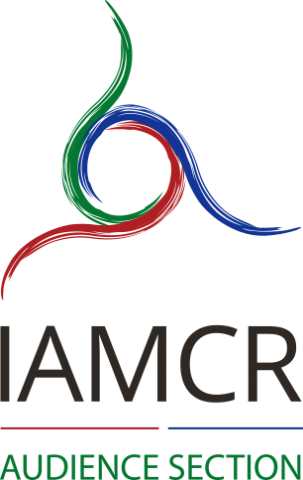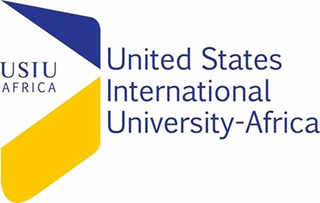Audience Section - Call for Proposals 2021
The Audience Section of the International Association for Media and Communication Research (IAMCR) invites the submission of proposals for single papers and multi-paper sessions (the online conference equivalent of a panel in a face to face conference) for IAMCR 2021, which will be held online from 11 to 15 July, 2021. The conference will also have a regional hub in Nairobi, Kenya. Both the online conference and the regional hub will be hosted by the Department of Journalism & Corporate Communication of United States International University-Africa (USIU-Africa) in Nairobi. The deadline for submission is 9 February 2021, at 23.59 UTC.
See the IAMCR 2021 general call for proposals
Themes
IAMCR conferences address a wide diversity of themes defined by our 33 thematic sections and working groups. We also propose a single central theme to be explored throughout the conference with the aim of generating and exploring multiple perspectives. This theme is addressed in plenary and special sessions, and in some sessions of the sections and working groups. Not all submissions have to address this central theme.
The central theme for IAMCR 2021, Rethinking borders and boundaries: Beyond the global/local dichotomy in communication studies, is concerned with how changes in communication theory and practice are challenging our understanding of global and local, creating new identities and discourses, and enabling a hybrid glocalisation, with both positive and negative consequences.
Five sub-themes of this central theme have been identified: The rebirth of populist discourses; Activism and the new global social justice movements; Trends in global media ecosystems; Identity: Gender, class, ethnicity, religion, sexuality; and Communication for development in health, climate change and education. See the complete theme description and rationale here.
Conference model: Online with an African "hub" and global satellite activities
In alignment with the possibilities offered by the COVID-19 pandemic, and with the conference’s main theme, Rethinking Borders and Boundaries, IAMCR 2021’s conference will offer multiple modalities for participation. It will be primarily an online conference but will also have an African “hub” at USIU-Africa, and satellite activities at various points around the globe.The various components of the conference include:
1. Online Conference Papers – Abstracts submitted in response to the section and working groups CfPs will be reviewed by the sections and working groups and accepted authors will be invited to submit short conference papers (1,000 to 4,000 words). These papers will be grouped into sessions and published on the conference website prior to the conference on a platform that will enable discussion during the conference.
2. Section and Working Group Online Sessions – IAMCR sections and working groups will curate a number of video sessions highlighting key issues within their thematic areas of specialisation.
3. Flow34 – A stream featuring videos that integrate academic and aesthetic narratives. Proposals for this component will be reviewed by the Flow34 team. Topics can originate from the entire field of Communication and Media Studies. The selected videos will be scheduled and presented on the conference platform.
4. Plenary Sessions – Several plenary sessions streamed from the conference hub at USIU-Africa will feature contributions from around the globe.
5. Special and Partner Sessions – These video sessions will be produced by IAMCR and its partners.
6. Nairobi Hub – In addition to being at the centre of the global online activities, the conference hub, at USIU-Africa, will host a regional face-to-face event (in accordance with the possibilities afforded by the pandemic). The regional event will interact with the global at several moments of the conference.
7. Other Regional/National Hubs – We are currently considering the involvement of other regional and national hubs and will be accepting requests from IAMCR members interested in sponsoring them.
This call for proposals is for the Online Conference Papers.
IAMCR members will have full access to all online components.
The IAMCR Audience Section invites papers that reflect the conference theme and sub-themes. The Section aims to reflect and encourage interest in understanding audiences for a range of media technologies, in diverse settings, reflecting the role of media in identity, everyday life and broader social, cultural and political engagement. Audience engagements and responses reflect the proliferation of populist discourses, activism and social justice, access to new technologies and contents of the global media industry and shifting conceptions of social identity. We particularly invite papers that reflect these sub-themes of the conference
We encourage reflection on the changing nature of audiences, innovations in ways of studying audiences across a range of media and contexts to address the challenge of an increasingly complex convergent media environment.
The general conference theme and sub-themes represents an excellent opportunity for audience researchers and we encourage papers that address the theme of Rethinking borders and boundaries: Beyond the global/local dichotomy in communication studies and the five sub-themes identified for the conference: The rebirth of populist discourses; Activism and the new global social justice movements; Trends in global media ecosystems; Identity: Gender, class, ethnicity, religion, sexuality; and Communication for development in health, climate change and education.
The challenges of dynamic and hybrid media contexts for inclusiveness, respect and reciprocity create new conditions for audience engagement with identities linked to media that crosses and blurs boundaries between cultures while providing new opportunities for diversity of identity and forms of expression.
In addition to the call for papers that reflect the general conference theme, we would like to invite proposals for single papers and multi-paper sessions that address the following themes, although we are also open to innovative and critical research on audiences from the full range of disciplinary and theoretical positions:
Rethinking Audience Research: Innovations in theory and method are essential if audience researchers are to keep pace with a rapidly changing media environment where audience(ing) takes multiple forms and resists easy categorization or investigation. We welcome proposals for papers that address new conceptual and practical approaches to studying audiences in the complex convergence of digital and linear media across a range of platforms and that reflect on the emerging agenda for audience studies in a radically transformed media ecology.
Configuring Audiences: academic audience research no longer ‘owns’ the concept of ‘the audience’, as, media industries, governments, regulators and NGOs are increasingly interested in audience research. We welcome papers that address the varied ways in which audiences are conceptualized, measured, and addressed by media industries, governments, NGOs and online groups and participants. How is the audience configured in these different contexts, for different reasons and using different methods?
Audiences in Context: There is a growing acknowledgement that the audience is not only to be found in front of the television in the domestic space of the living room. Studies of Fans and other dispersed audiences have encouraged an ethnographic turn in audience studies and the decentering of the contexts and practices of being an audience. We welcome submissions that ‘follow’ audiences into different contexts and engage with the ways that media are dispersed through the practices of everyday life. Complementing this is a rethinking of the spaces of media consumption, including the home, which integrates a range of media technologies in everyday practice.
Audience Experience: There are a variety of ways in which audience experience(s) are being rethought in media and communication. For example, as participants in social media, audiences contribute to the media environment through their online practices and join themselves to a variety of groups and movements. There has been a growing recognition of the importance of belonging and affect in media engagements suggesting new ways of thinking of the visceral aspects of audience engagement that afford new forms of connectivity. These shifts are both welcomed as creating inclusive spaces of engagement and feared because of the strength of feeling associated with populism. The section welcomes submissions that engage these new ways of thinking about audience experiences.
Measuring Audiences: a variety of methods are developing to quantify audience practices in a variety of ways. Broadcasters gather data on audience responses through a variety of means that are displacing traditional audience surveys and panels. Twitter feeds provide resources for big data analysis of connected audiences and their sentiments. Submissions reflecting on new media audience research tools and applications are welcomed.
Youthful audiences: Young people’s relationship with media has been the subject of both the celebration of the potential for new forms of creative expression and anxiety with regard to the impact of powerful media on vulnerable audiences. In relation to new media forms, young people are frequently seen to be in the vanguard of new audience trends and emerging practices of consumption and engagement. We welcome papers that explore audience experience from the child’s perspective, and that examine opportunities, risks, and challenges faced by children in the current media environment.
Transnational Audiences: there is a transnational turn in media audiences for global formats and local series, signaling an increasing range of audio-visual content available to consumers, fans and publics, including translations, subtitling and fan subbing of fiction and non-fiction television and social media. Doing audience research in digital and transnational media landscapes calls for multi-faceted, pragmatic approaches to varieties of audience experiences in social and cultural contexts. We welcome papers that explore transnational audiences, including the significance of distribution contexts, geo-cultural approaches to audiences, and the significance of place and time, to researching audiences, users and publics.
Guidelines for abstracts
Abstracts submitted to the Audience Section should have between 300 and 500 words and must be submitted online via IAMCR's online submission platform. Abstracts submitted by email will not be accepted.
It is expected that authors will submit only one (1) abstract. However, under no circumstances should there be more than two (2) abstracts bearing the name of the same author, either individually or as first author. No more than one (1) abstract can be submitted by an author to the Audience Section. Please note also that the same abstract or another version with minor variations in title or content must not be submitted to more than one section or working group. Any such submissions will be deemed to be in breach of the conference guidelines and will be rejected.
Proposals are accepted for both single papers and multi-paper sessions (the online conference equivalent of a panel in a face to face conference). Please note that there are special procedures for submitting multi-paper sessions. You can find the detailed procedures when submitting your abstract online in the abstract submission system.
If your abstract is accepted, you will need to submit your full conference paper (1,000 to 4,000 words) by 7 June 2021, in order to be included in the programme.
Languages
The Audience Section accepts papers and multi-paper sessions in English, French and Spanish and every attempt is made to group individuals by topic taking language into account.
The deadline to submit abstracts is 9 February 2021 at 23h59 UTC.
See important dates and deadlines to keep in mind
For further information about the Audience Section, its themes, submissions and multi-paper sessions please contact: Peter Lunt (pl108 [at] le.ac.uk)


